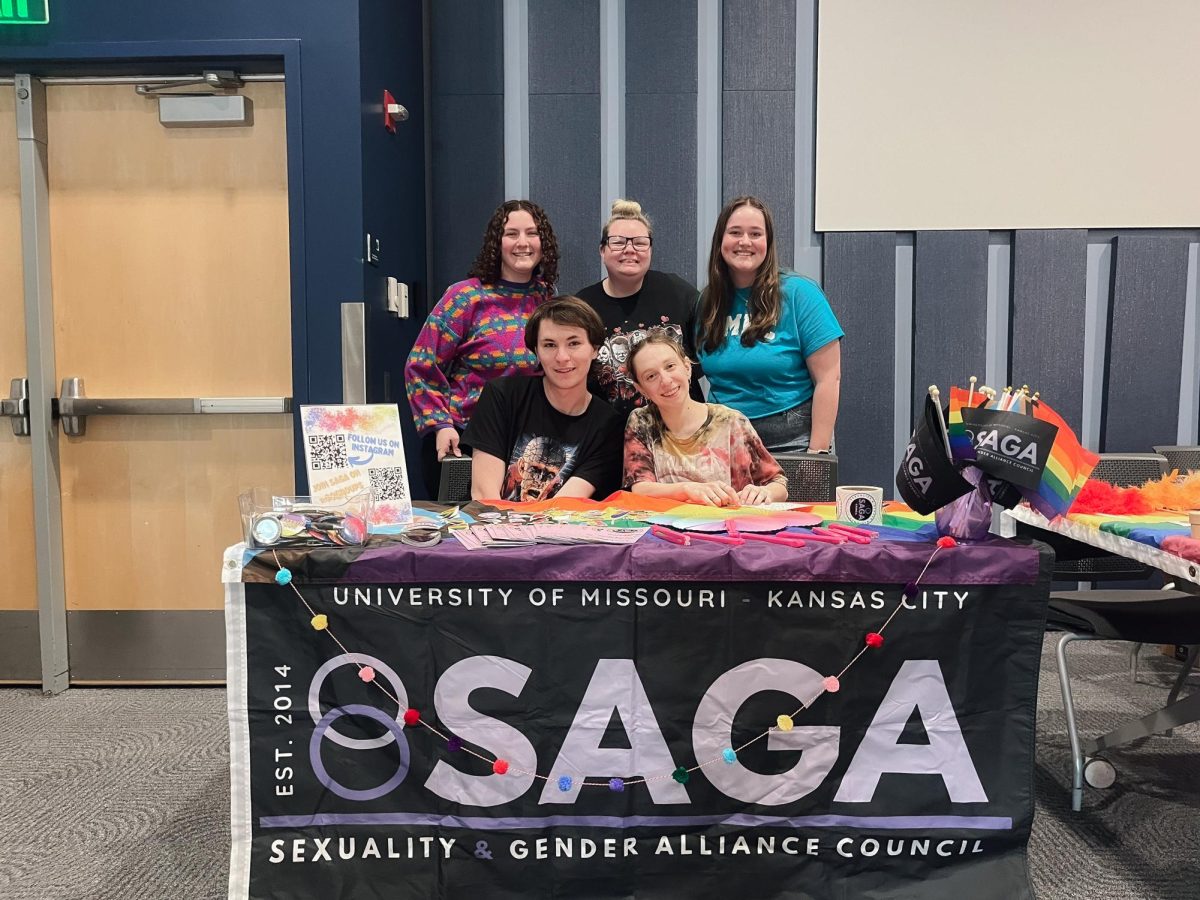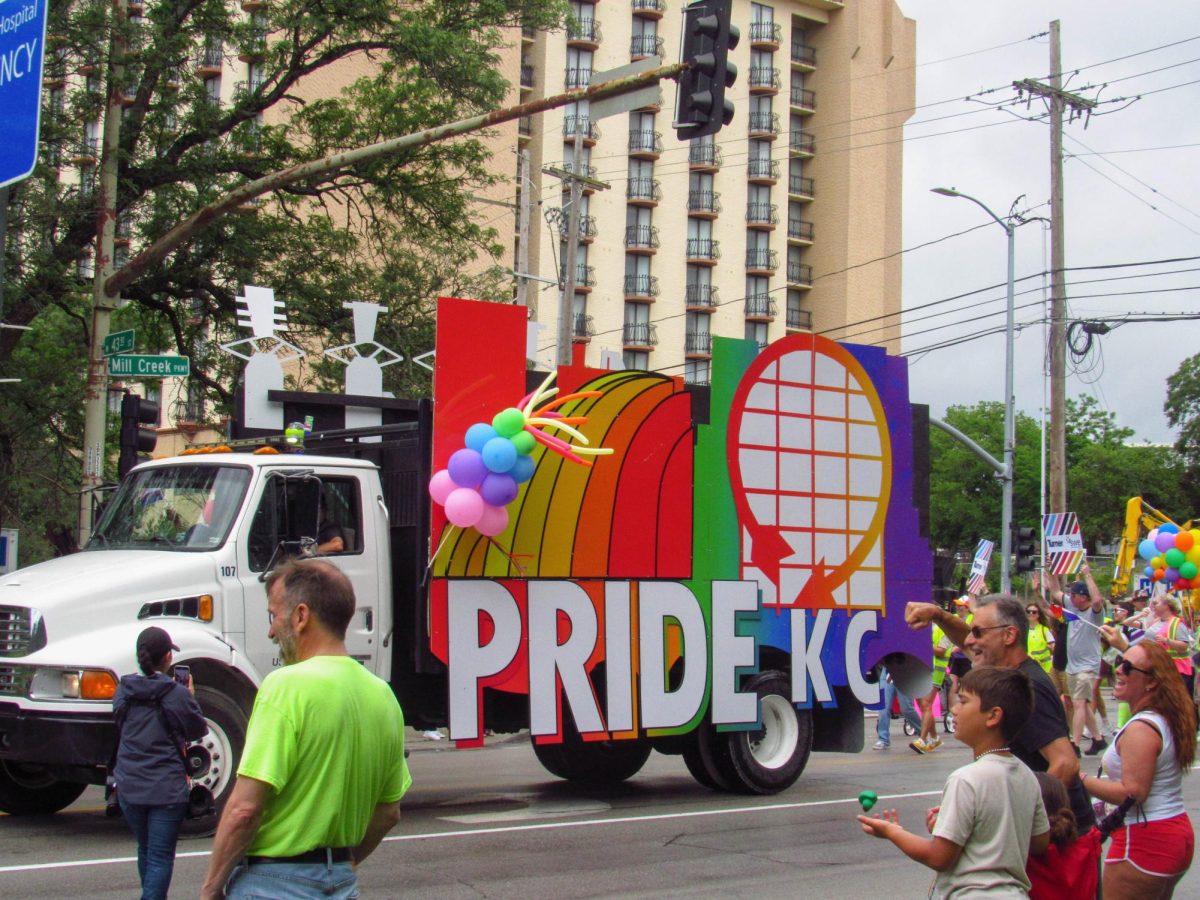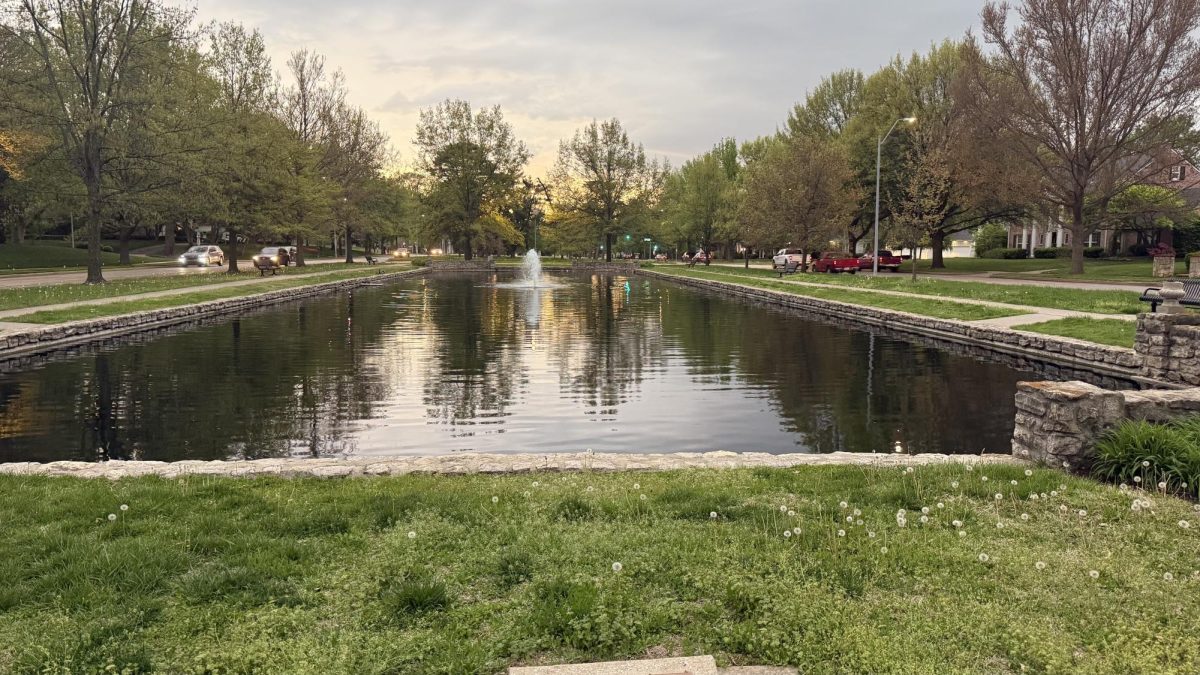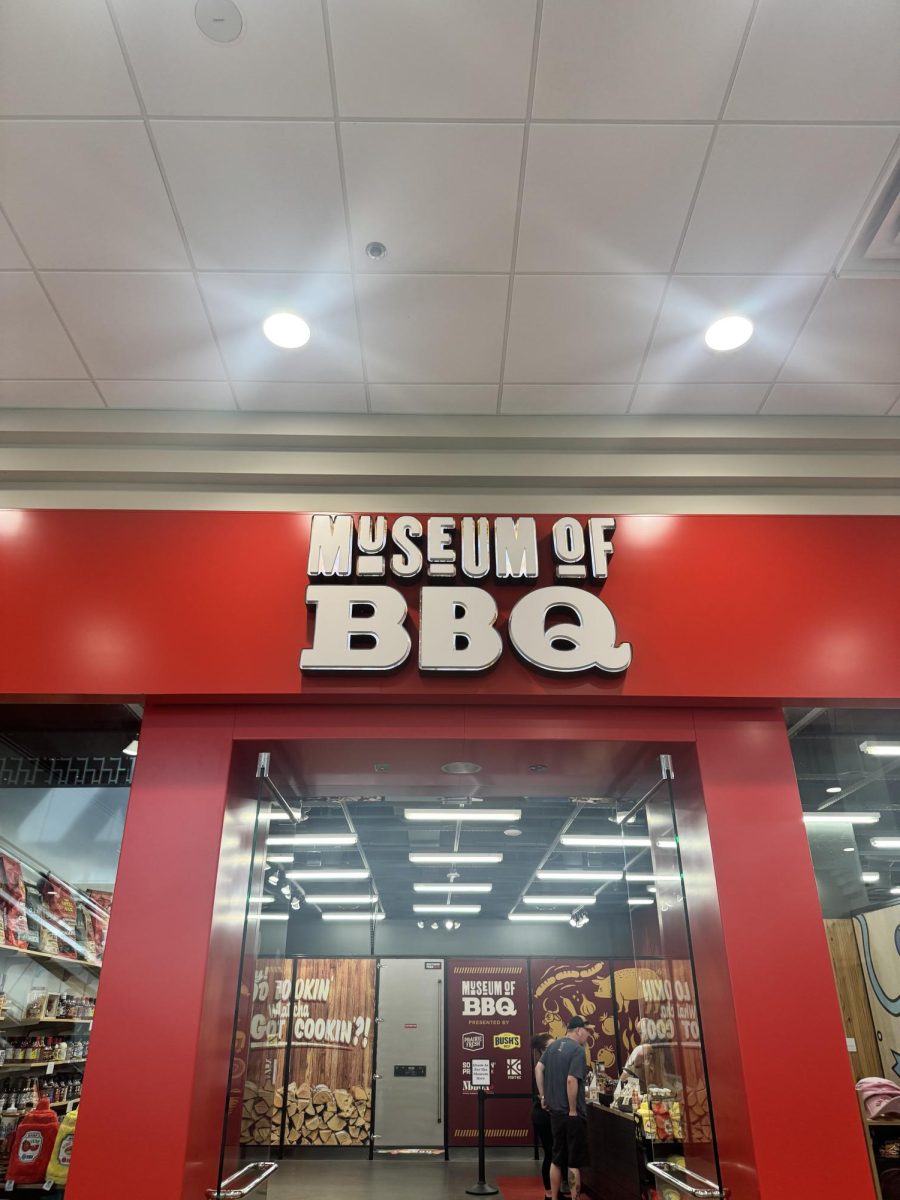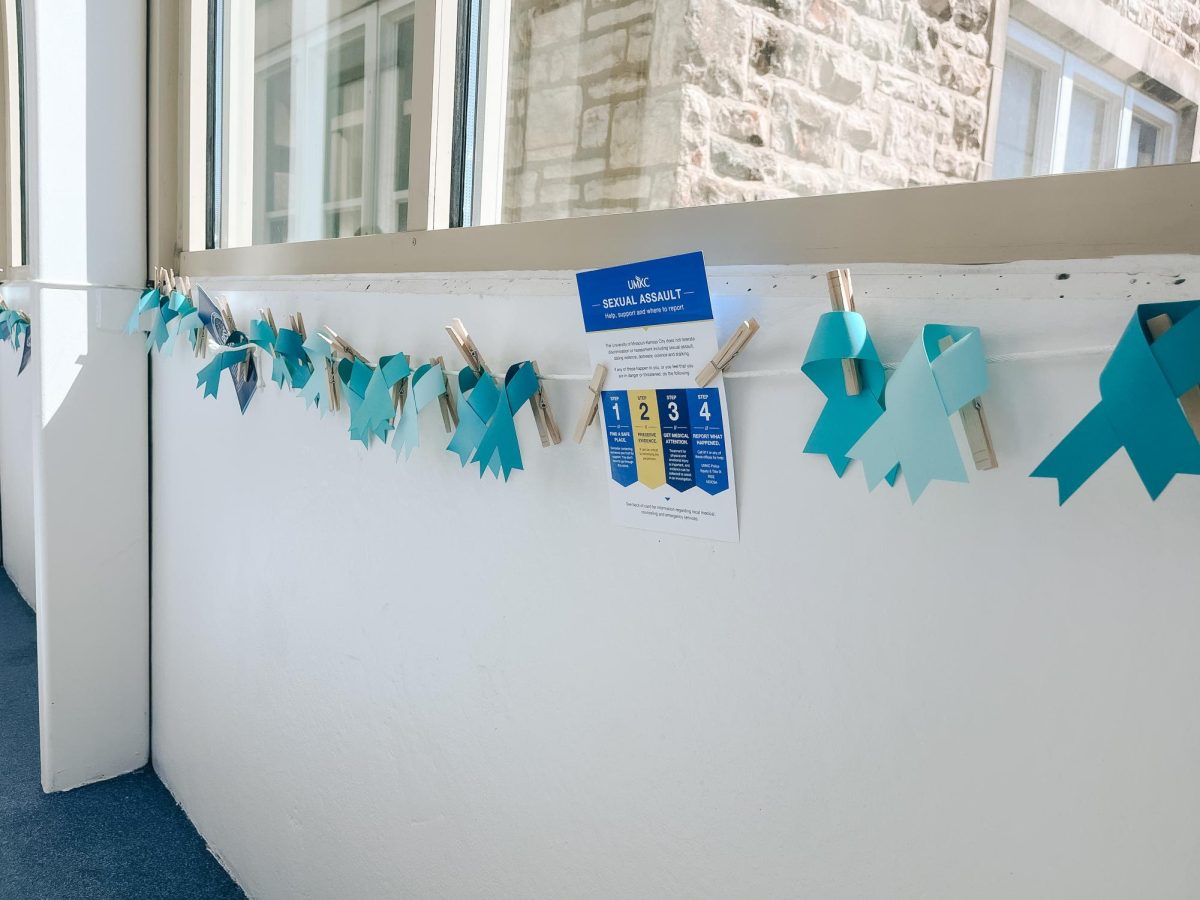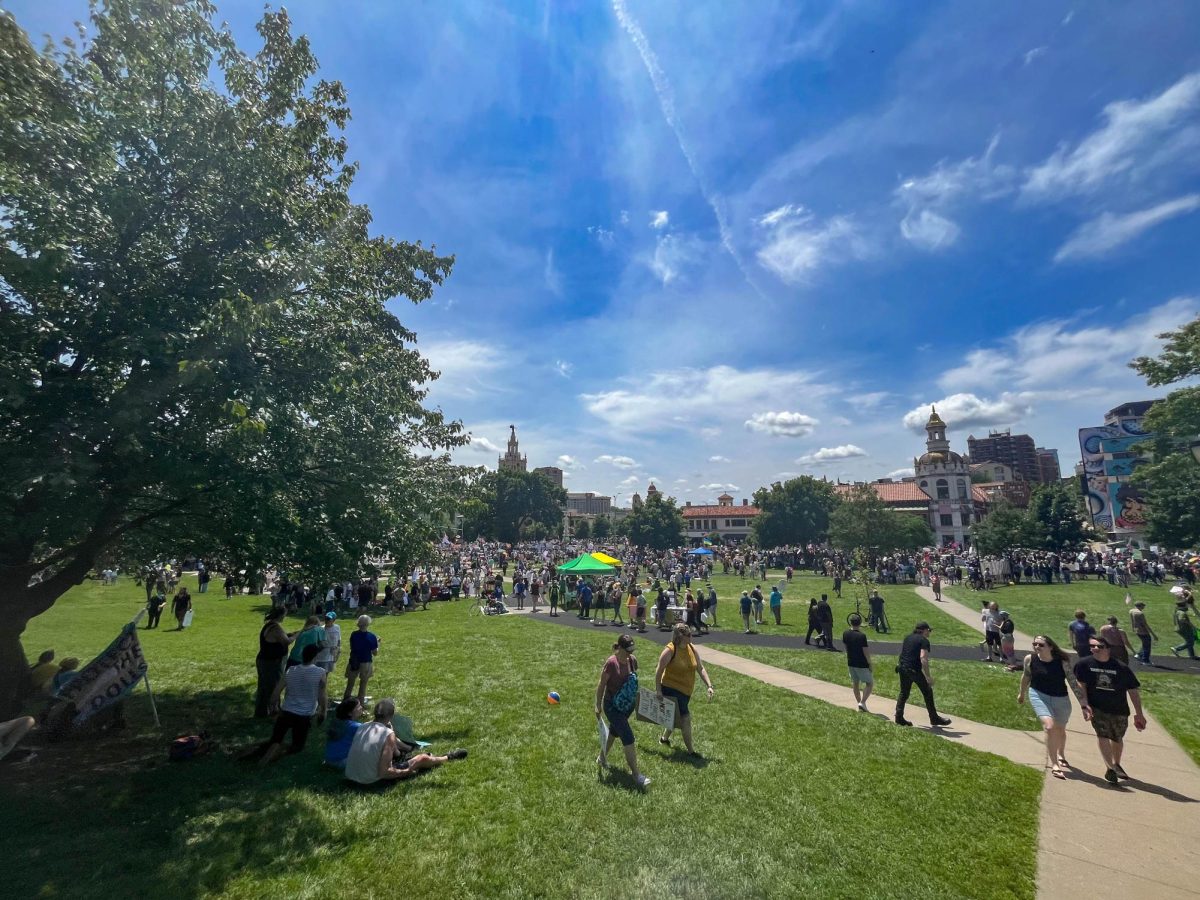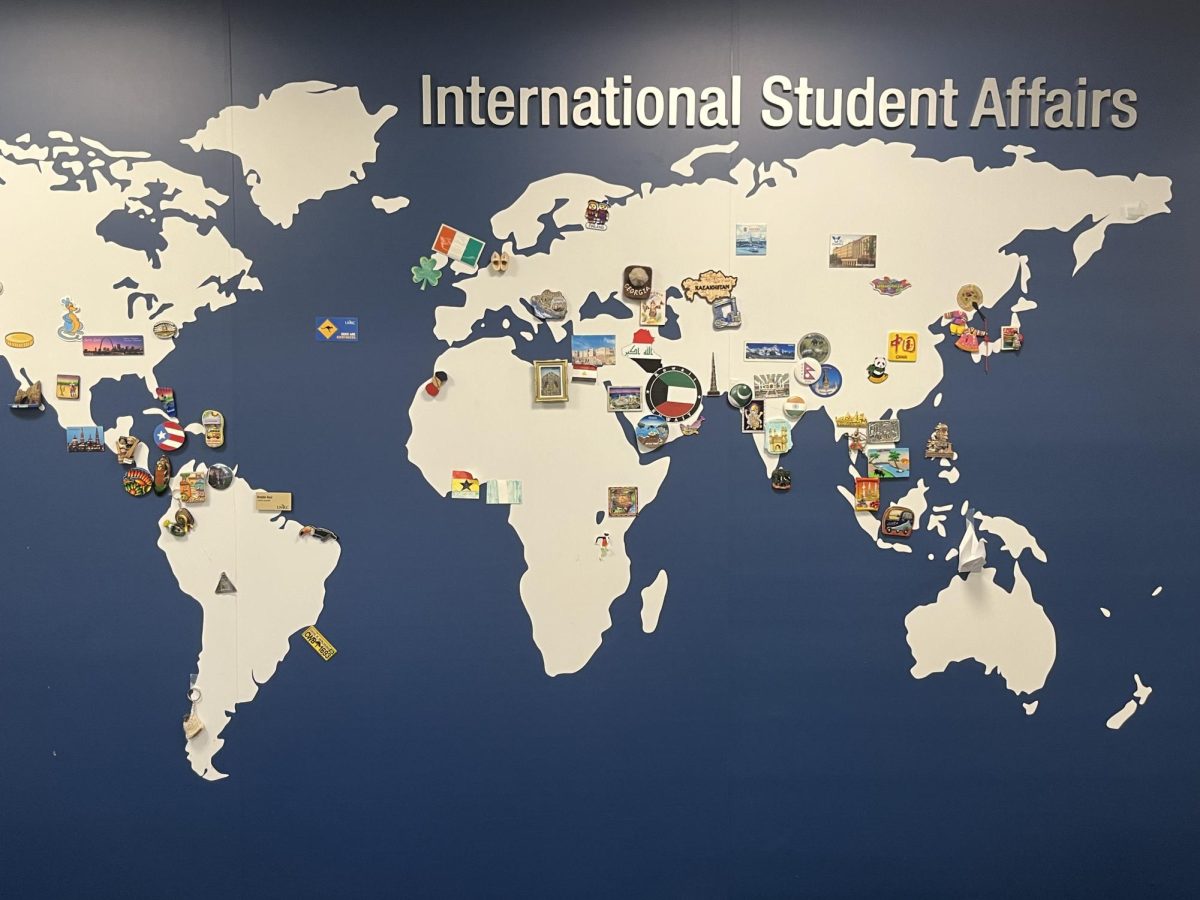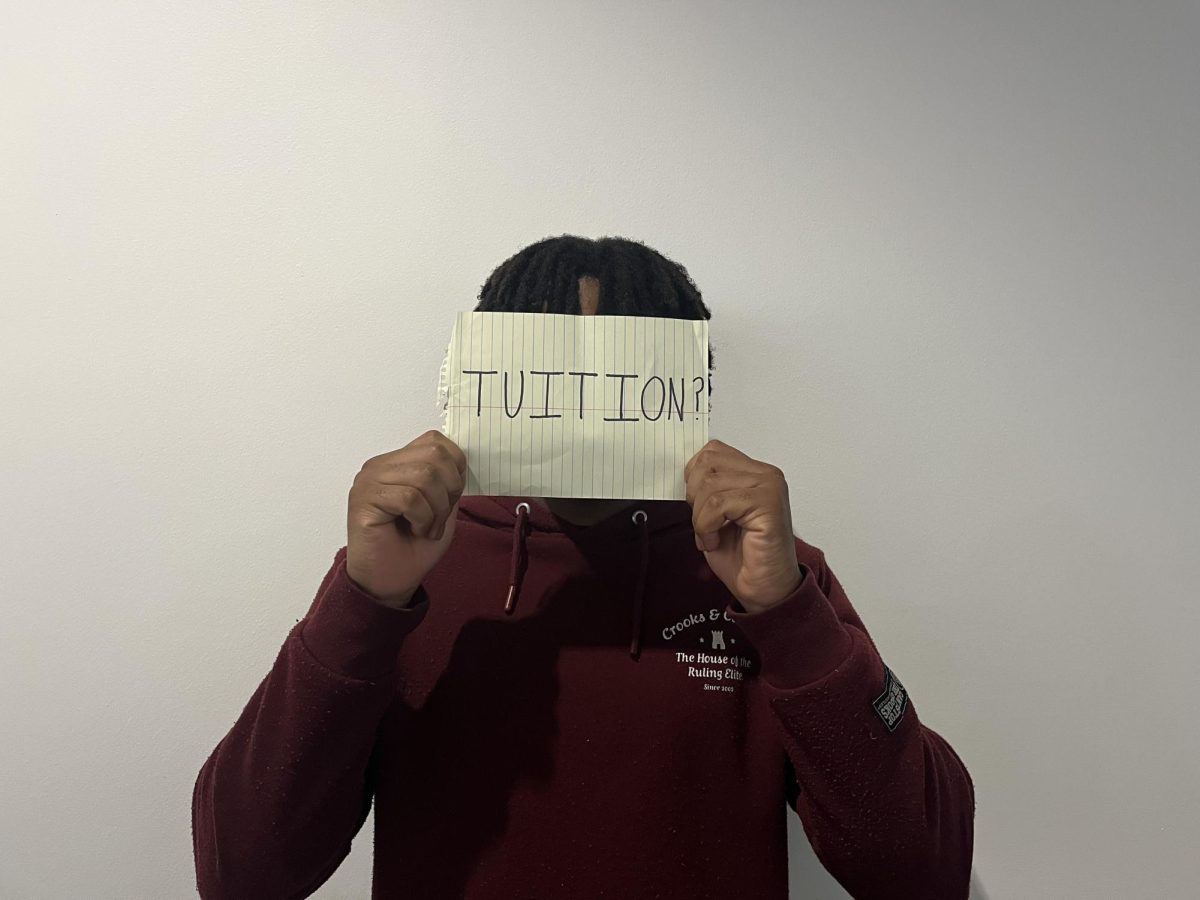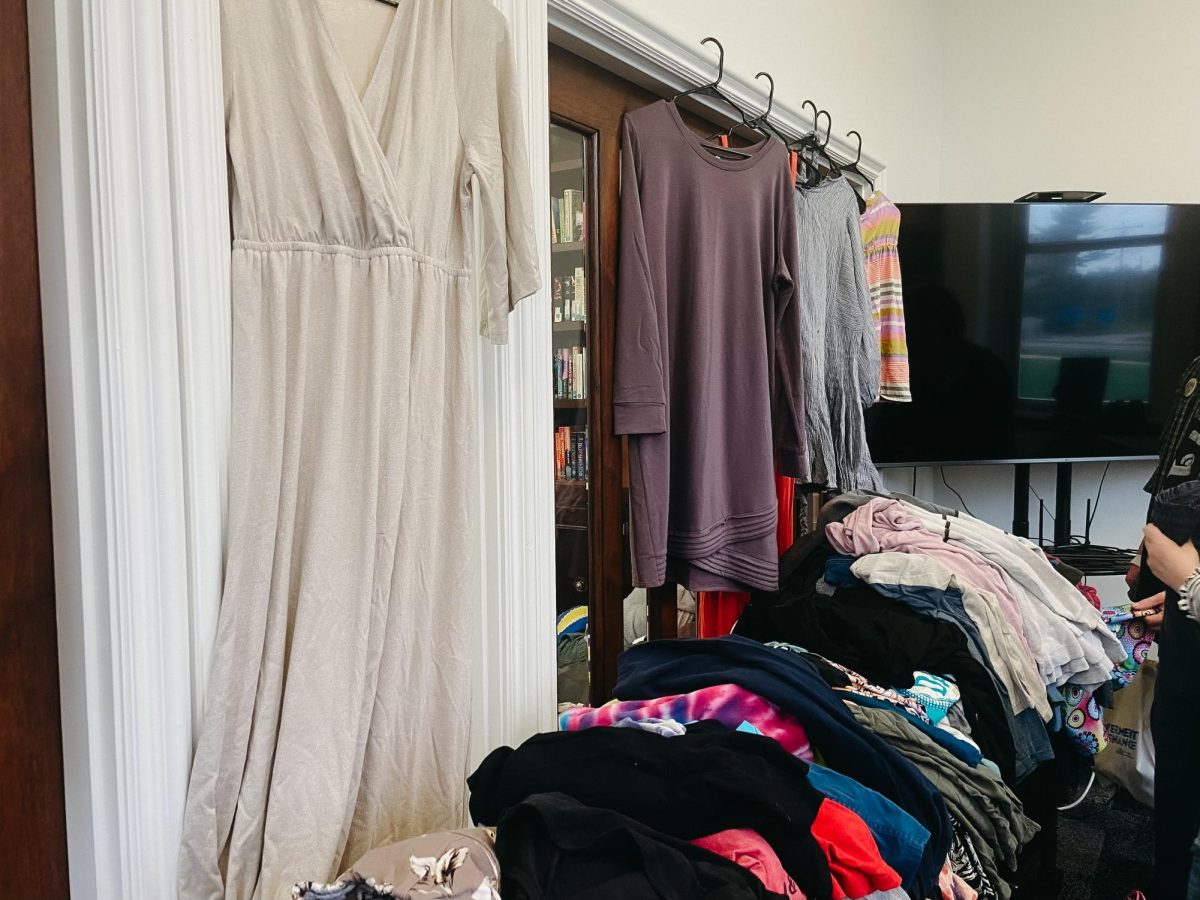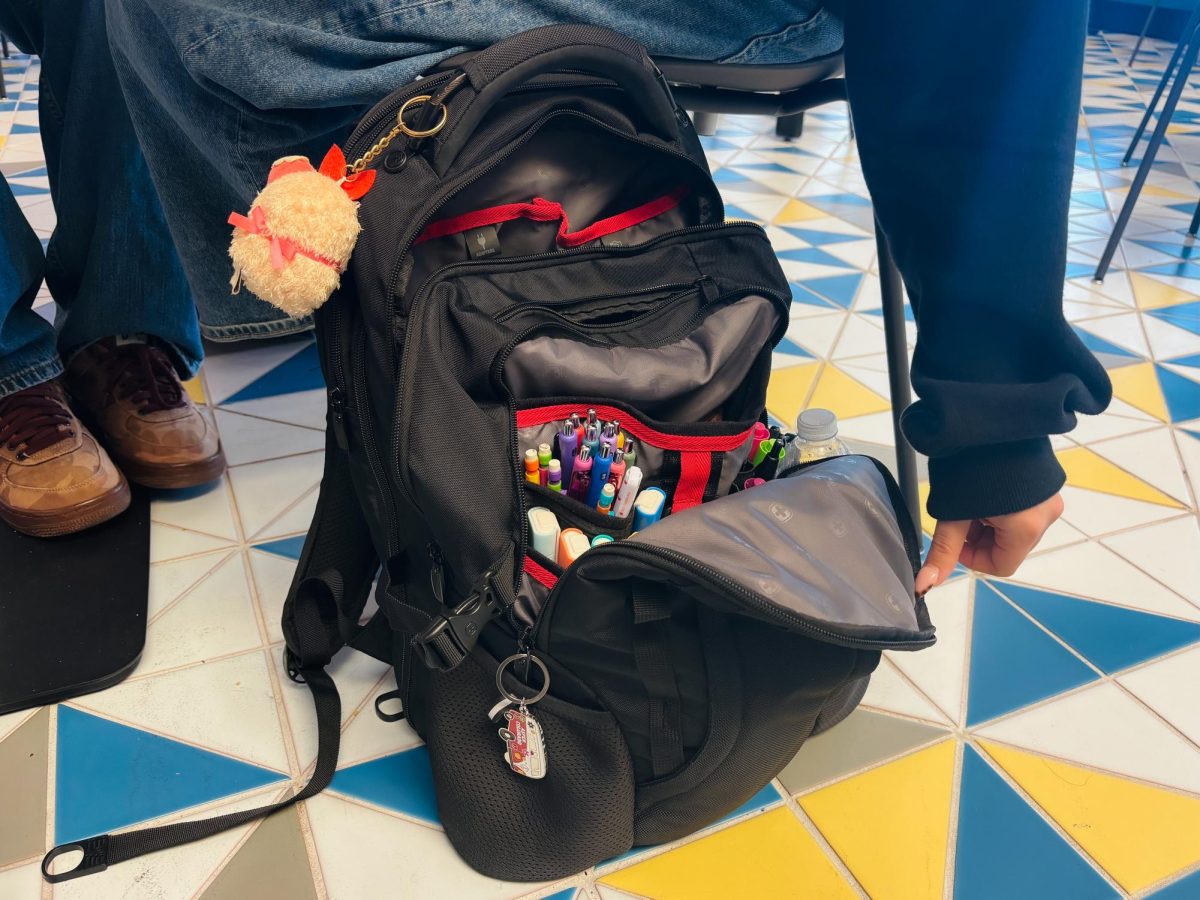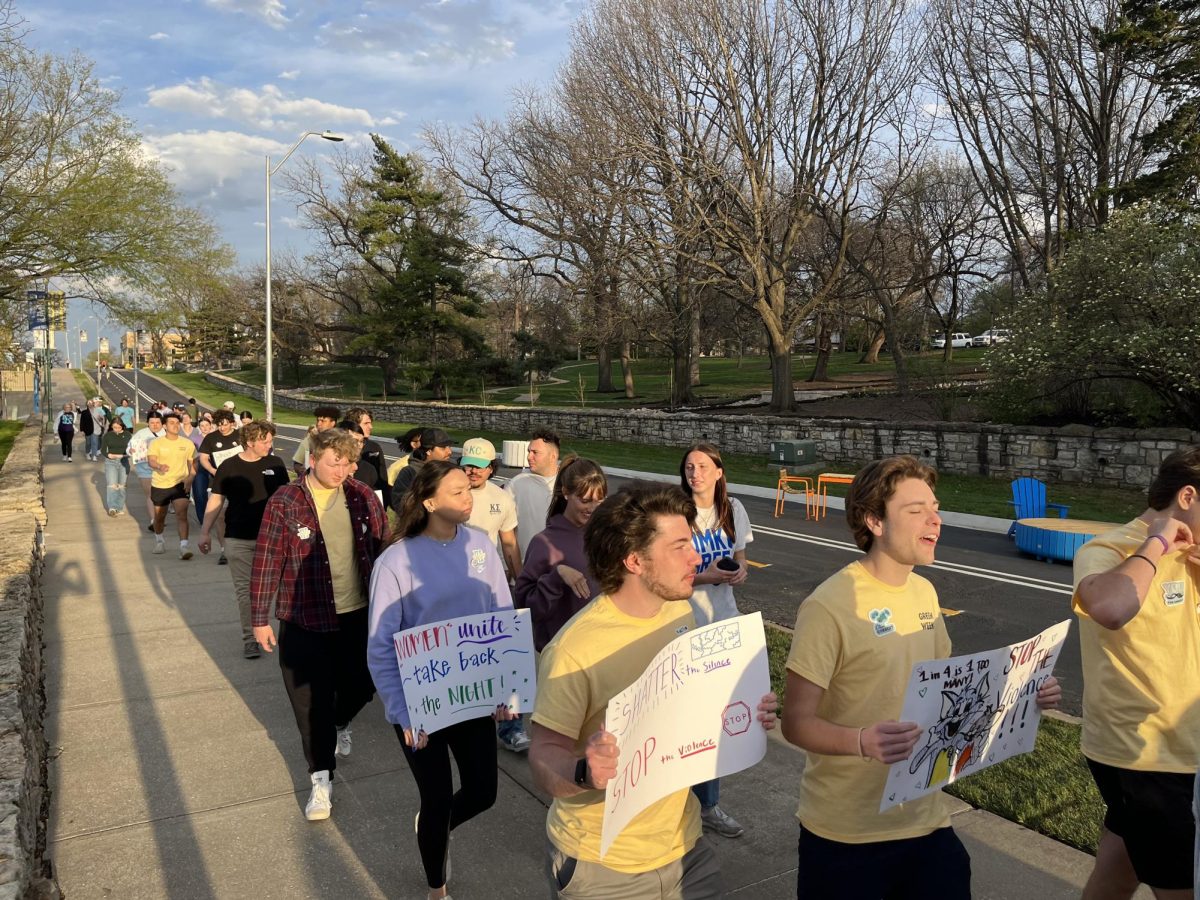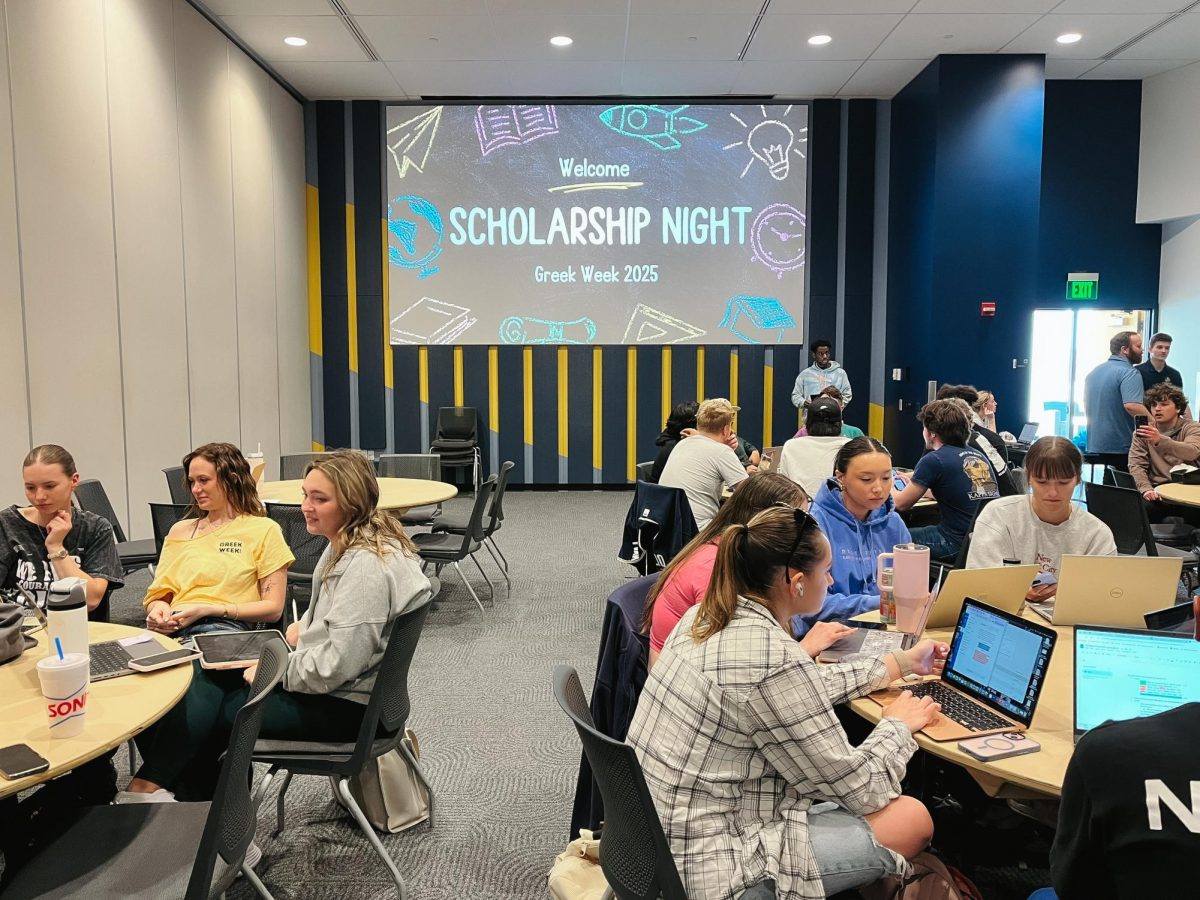A panel of speakers answered questions from attendees on approaching healthy relationships of all kinds on April 15 on the fourth floor of the Student Union.
The Relationship Spectrum: Navigating Healthy Relationships event hosted by the Sexuality and Gender Alliance Council (SAGA) aimed to allow for a space to inquire anonymously about all types of relationships.
April is both Pride Month at UMKC and Sexual Assault Awareness Month, so an event like this is important to bring awareness to what a healthy versus an unhealthy relationship looks like.
“We want to shed light on the fact that healthy relationships are something that we can all learn to navigate better,” said Celeste Michael, senior studying sociology and cabinet member of multiple organizations involved. “We also want to showcase from a more positive centered approach how we navigate these healthy relationships.”
Among the guest panelists were two advocates from the Metropolitan Organization Covering Sexual Assault(MOCSA). MOCSA focuses on educating students, prevention efforts in the Kansas City community and offers advocacy and counseling for survivors. MOCSA also has a 24/7 Crisis Line.
Alyssa Buffington, a MOCSA advocate, mentioned the importance of educating people from all different backgrounds, ages and identities on what healthiness means in relationships.
When thinking about relationships, your relationship with yourself is just as important as with others. This is what Kristin Summers, a panelist and an authenticity coach for Divine Duality, stressed during the event – the importance of self care and love.
“If you want to truly love someone, you have to give it to yourself first,” said Summers. “You can’t assume people are going to know how to love you, you have to know how to love yourself so you can communicate that.”
Having these conversations are important on a college campus because so many students are being introduced to new things and people.
“Knowing how to approach things in a healthy manner and being able to build those foundations for going into adulthood is really important,” said Caroline Cooper, a senior studying business administration and the SGA representative for SAGA.
Atlas Sizemore, a junior in the exploratory major and the president of Trans+, wanted to focus on letting students know that they are not alone and that the campus community has good resources.
“Unhealthy relationships in general are kind of normalized, so I think it’s important that we are able to confront that head on and be able to have a safe space for students,” said Sizemore.
To contact MOCSA’s 24/7 Crisis Line, call 816-531-0233.


